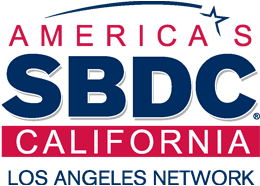SMBs using modern technology outperform those that do not; research from The Boston Consulting Group (BCG) discovered that small-and-midsized businesses that leverage new technology had 10 points higher job growth and 11 points higher revenue growth than “low-tech” SMBs. Embracing the right technology solutions and collaborating with other entrepreneurs in your area can lead to relationships and results previously not considered. As a partner and solution provider for SMBs, here are 10 strategies brought to you by Microsoft Corp. to help your business increase revenue and job growth through technology.
-
Plan once, plan again and repeat. Many small businesses start off strong with a concrete business plan and specific goals, yet get so caught up in daily tasks like inventory and payroll that they lose sight of the larger plan. Plan a long-term strategy and develop a yearly plan that aligns to your overarching goals.
-
Rise to the Cloud. Cloud technology provides cost savings, enhanced productivity, and the ease of scaling your operations. Cloud-based services for tasks like document storage, video conferencing, email and calendars are typically a fraction of the cost of buying and maintaining servers and software. Cloud technology also provides greater flexibility and mobility since the data is stored online and is therefore accessible from any device with an Internet connection. Microsoft 0365 product is available also Dropbox, Zoolz, and many more .
-
Get mobile. Connectivity through mobile devices benefits employers and employees alike — for employers, reduced office expenses, access to a larger talent pool and better business continuity are all big advantages. For employees, remote working provides your employees with an elusive work-life balance, cuts down on commute time and office distractions and can improve customer relations by providing a means to respond more quickly to customer needs. Start by asking employees what they’d like to see in a remote working policy and what tools they have or need to make mobility a reality. Microsoft offers a suite of tools to help make the transition seamless.
-
Invest in your online presence. An up-to-date, easy-to-navigate website is crucial for any business. It is often a customer’s first impression of your business and you want it to be a good one. Take the time to check out your competitors’ sites with your “consumer hat” on. Ask questions like, “Is it easy to find what I’m looking for?” or “Is contact information readily available?” The answers to these simple questions can guide the redevelopment of your site.
-
Socialize. Take advantage of the opportunity to grow with a social presence; listen to what is being said about your brand online. Share dynamic content, photos, videos and encourage others to do the same, you can build a community of brand evangelists who will spread the word about your business and perhaps offer up some fresh ideas. Free and low-cost sites like Crowdbooster and Sprout Social can help you build your audience.
-
Attract top talent. Big businesses often have a big advantage when it comes to attracting top talent, but with a little effort, small businesses can gain the upper hand. Play to your company’s strengths by implementing a flexible work policy that will attract Millennials and people outside of the typical 20-to-30 mile commute. Advertise openings on sites like LinkedIn and pay special attention to comments from past employees shared online on sites like Glassdoor. Share your business’ success stories on your website and social media as often as you can to attract talent who want to personally invest in your business.
-
Don’t be afraid of CRM. The smartest small businesses think about technology in the same way that larger companies do asking: “What technologies can help me streamline business processes, stay close to my customers and improve my offerings?” A study of the adoption of cloud-based applications by small businesses, conducted by Dell and Techaisle research, found that CRM was by far the most adopted, up from 34 percent in 2010 to 55 percent in 2012. Your business might be ready for CRM if you’ve experienced any of these situations. Click here to learn how to choose the right CRM tool.
-
Upgrade your hardware. Using outdated technology can not only cost you in productivity, repeat customers and revenue, but it also can cause reputational damage. A recent survey found more than 90% of consumers said they would consider taking their business elsewhere rather than work with a company that uses outdated technology. Upgrading to newer, more flexible technology such as tablets or ultrabooks can enhance customer perception and experience.
-
Use “small data.” You have probably heard the buzz around “big data,” but for a small business, small data can be just as important. Leverage the opportunity to impart personal touches; take the time to get to know your customers by engaging in discussions during every visit. Keep a record of these interactions and set up reminders in your CRM system for birthdays or anniversaries and provide discounts in recognition of these special occasions. Send personalized emails and thank you notes to remind them of the great experience in your store.
-
Collaborate to win. Work closely with other businesses in your community to plan sales, events and more. You can even collaborate to save money on things you’re ordering in bulk such as office supplies. Your local SBDC is great resource and can help connect you to the right people.
Content provided by: Mark Kornegay, General Manager, Southern California District, Microsoft Corp.
Mark Kornegay is the General Manager of Microsoft’s Southern California District where he leads the ingenuity behind software and solutions that enable customers to find creative solutions to business problems, develop breakthrough ideas, and stay connected to what’s important to them. Kornegay has a Bachelor of Arts degree in communications from the University of Virginia and a Juris Doctorate from Catholic University of America – The Columbus School of Law. Before Microsoft, Kornegay was an Assistant United States Attorney and also served as an FBI agent.





